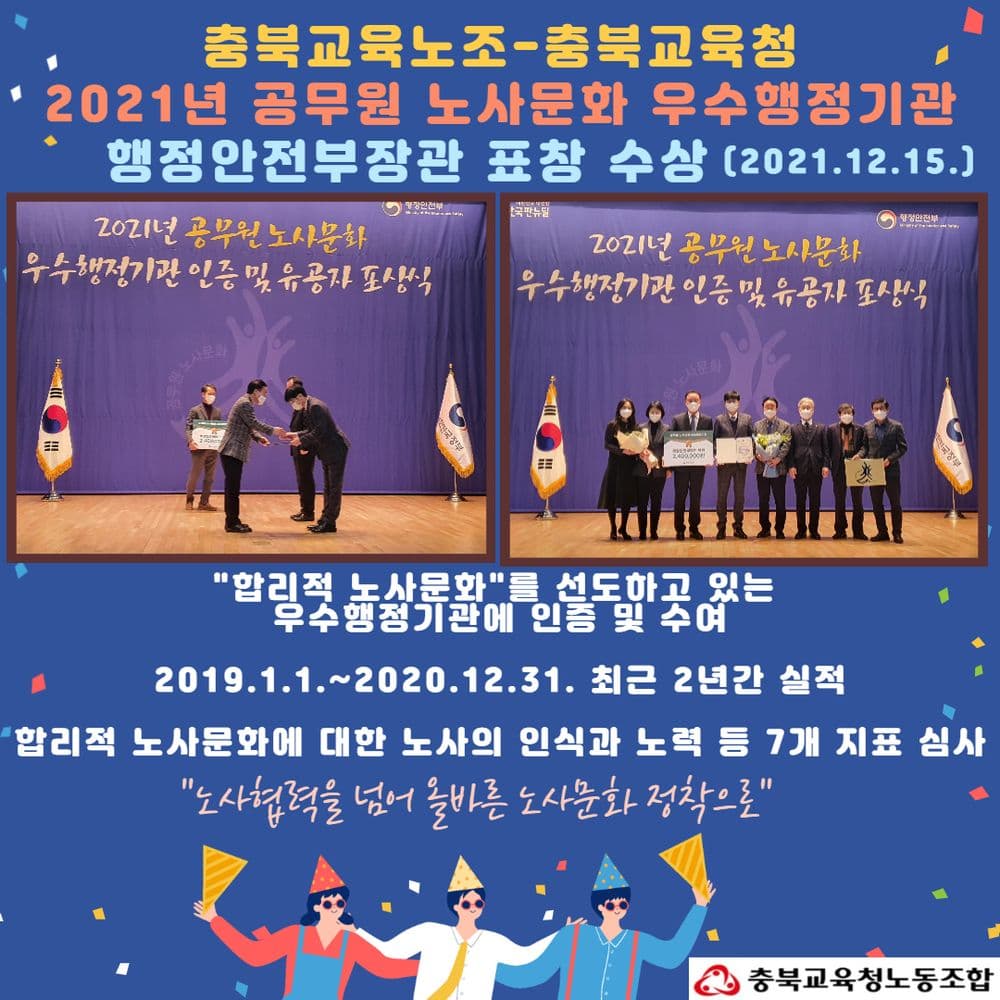Why South Korean Civil Servants Are Getting National Honors Before Retirement

A Ceremony of Recognition and Gratitude
On July 24, 2025, something special happened at the Chungbuk Office of Education. The Harmony Hall filled with civil servants, some finishing their careers, others being recognized for outstanding work. Can you imagine dedicating 30, even 35 years to public education? That's exactly what 47 individuals were honored for during this ceremony. The Chungbuk Provincial Office of Education held an awards ceremony honoring 28 retiring civil servants and 19 exemplary employees with government medals and citations. Among the attendees were recipients of prestigious honors including the Hongjo Order of Civil Merit, Nokjo Order of Civil Merit, and Prime Minister's Citations. Superintendent Yoon Gun-young personally presented these awards, marking a significant moment in these civil servants' careers.
Understanding Korea's Honor System

What makes these awards so meaningful? In South Korea, government honors aren't just certificates hanging on walls. They represent national recognition of lifelong dedication to public service. The Hongjo Order of Civil Merit went to former Education Library Director Lee Jong-soo, while Kim Young-seop, head of the Educational Facilities Division, received the Nokjo Order of Civil Merit along with six others. The hierarchy matters deeply in Korean culture. Orders are given to those with 33 or more years of service, while medals go to those with 30 to 32 years. Presidential Citations recognize 28 to 29 years, and Prime Minister's Citations honor 25 to 27 years of service. This systematic recognition reflects Korea's Confucian values of respecting dedication and seniority. For many Korean families, having a member receive such honors brings tremendous pride, almost like achieving a family legacy.
Stories Behind the Medals
Who were these people being honored? They weren't politicians or celebrities. They were school administrators like Yoon Cheong-geun from Danjae Elementary School and Kim Yoon-soon from Yangsan Elementary School. These individuals spent decades ensuring schools ran smoothly, students had safe facilities, and teachers could focus on education. Jo Seo-hyeon, a kindergarten teacher, and Yoo Eun-sang from the Policy Planning Division were among 19 exemplary civil servants who received Prime Minister's Citations. What did they do differently? According to Korea's award criteria, they maintained flawless public and private conduct while making significant contributions to national development. Online communities like Naver and Daum showed mixed reactions. Some netizens praised the dedication, commenting that these civil servants sacrificed personal time and endured bureaucratic challenges for decades. Others questioned whether such honors truly reflect merit or simply longevity. This debate reflects changing attitudes among younger Koreans who value work-life balance over traditional career dedication.
Why This Matters for Understanding Korean Society
Superintendent Yoon Gun-young's speech revealed something profound about Korean workplace culture. He said these retiring civil servants became the foundation and history of Chungbuk education. This isn't just polite rhetoric. In Korea, the concept of leaving a legacy through institutional service remains deeply valued, especially in education. What's changing? While previous generations viewed lifelong public service as the ultimate career goal, younger Koreans increasingly seek flexibility and personal fulfillment. The average Korean worker now leaves their longest-held job at age 49.4, yet civil servants still commonly work until mandatory retirement at 60 or 62 for educators. These ceremonies serve multiple purposes beyond individual recognition. They reinforce organizational culture, inspire current employees, and publicly demonstrate that dedication gets rewarded. For foreign observers, they offer insight into how Korean institutions balance traditional hierarchical respect with modern accountability. The transparency requirement is notable too. Before receiving honors, candidates undergo public verification periods where citizens can submit concerns, ensuring the process maintains integrity and public trust.
Discover More

Korean Politician Says President Should Grab Chaebol's Coattails - What's Behind This Dramatic Call?
Former youth leader Jang Ye-chan urges President Lee Jae-myung to swallow his pride and seek help from retail tycoon Jung Yong-jin, who has direct connections to Trump's inner circle, amid stalled US-Korea tariff negotiations.

When Heat Waves Hit Hard: How Ansan's Mobile Meal Service Put Safety First
Ansan City Volunteer Center made the tough decision to suspend their beloved mobile meal service during August's extreme heat, prioritizing the health of elderly recipients and volunteers while finding creative alternatives to continue serving the community.